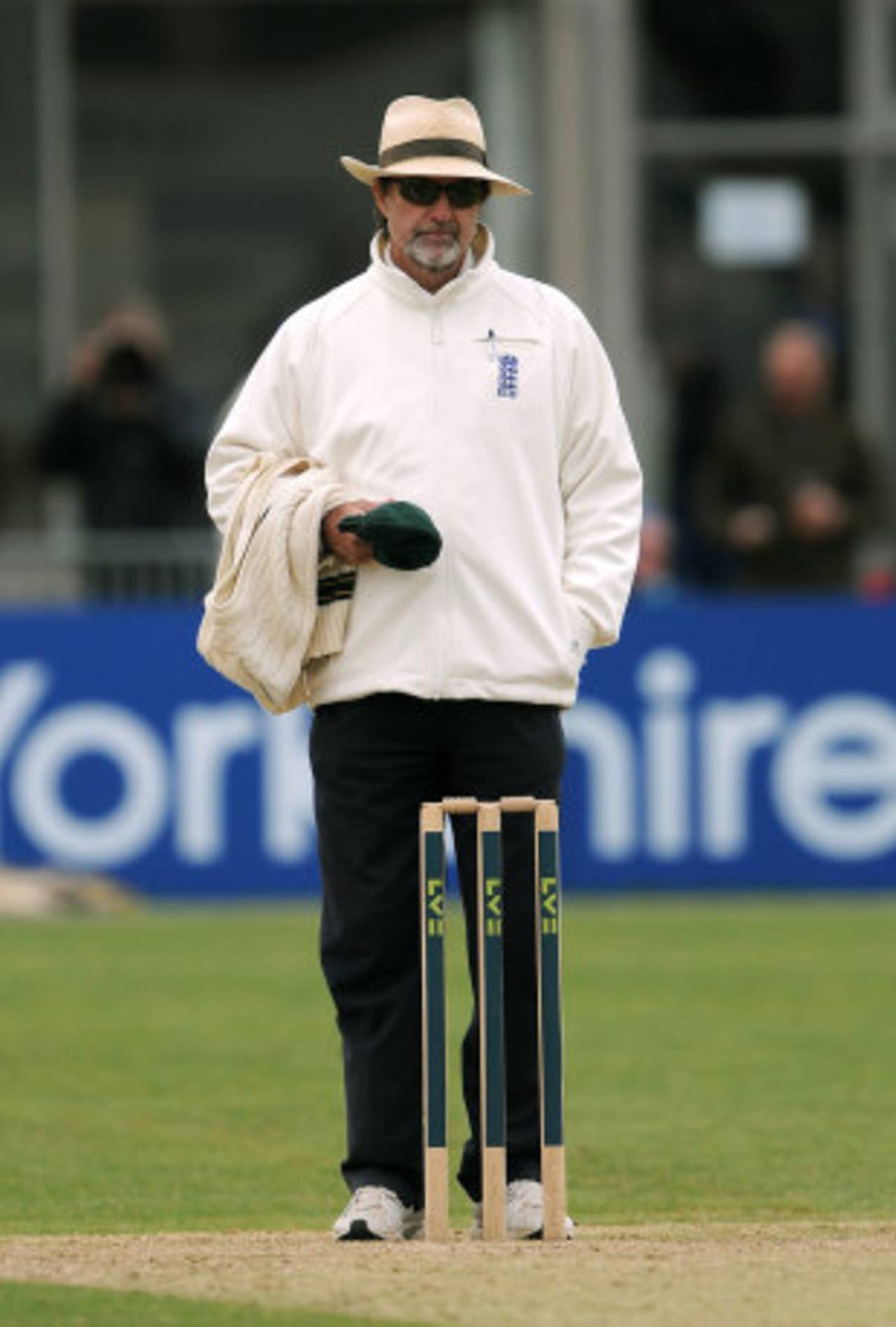The employment laws will be tested in an unexpected way this autumn when
Peter Willey and
George Sharp, two long-serving and respected umpires who face mandatory retirement at the end of this season, intend taking the ECB to a tribunal in an effort to prolong their careers beyond the age of 65.
Both are keen to continue officiating in first-class cricket for a further season or two. If they win their case, there would appear to be nothing to prevent a fit individual with unimpaired eyesight carrying on beyond the age of 70.
A change in the law in 2011 stipulated the abolition of a default retirement age. Reaching 65 could no longer be regarded as a 'safe' time to retire employees. Employers would have to show an objective justification for doing so then or on any fixed contractual date.
Willey is regarded as one of the most no-nonsense umpires on the circuit and officiated in international matches between 1996 and 2003. A distinguished playing career with Northamptonshire, Leicestershire and England lasted until he was 41, proof in itself of longevity, and Willey takes the view that he and his colleagues are much fitter than their predecessors.
He has been in the gym this week, in between matches and negotiations with the ECB which have been on-going all summer. "I would like to do a couple more years, but if it all ends next month, I will still have had a very happy time. Our legal people are looking into what we should do," he said. The employment law states that "If an employer wishes to operate a compulsory retirement age after the default retirement age is abolished, they will need objectively to justify it."
The ECB, which has taken legal advice, justifies its policy of compulsory retirement by wishing to promote newly retired players seeking another career. "We want cricketers who give up playing in their mid-thirties to have the chance of umpiring as a second career. History shows that former players make good umpires so we need to provide some certainty as to when opportunities will arise," a spokesman said.
Willey, a former chairman of the umpires association, admitted there was a difference of opinion among the first-class umpires. "Our younger colleagues want us to go, so as not to block their progress, and the older ones are not quite sure. I would not want to go on for ever, for I did as a player. When I retired at 41, things were not working properly," Willey said.
Numerous umpires in the past would have wanted to continue in the game - for the lifestyle and involvement as much as improved remuneration. Ray Julian was one such official. He was forced to stand down in 2001 and continued to stand in matches that were not of first-class status. No doubt Dickie Bird, if he had his way, would still be officiating today.
The last occasion on which an umpire took an employer to a tribunal - Darrell Hair and the ICC in 2007 - the hearing turned into a theatrical event presided over by two heavyweight lawyers who were altogether too sharp for a series of hapless administrators. Robert Griffiths QC, who represented Hair and who chairs MCC's Laws committee, said: "I can see no reason why, if an umpire is capable of properly performing his duties, he should be required to stand down at 65. It seems to me the essential prerequisites of being a good umpire, as with a judge, are good judgement, vast experience and knowledge of the laws of cricket. "
Willey himself does not wish to block the progress of younger individuals. "Young umpires do need experience of matches such as MCC v champion county, rather than us continuing to do these," he admitted. If he does retire, he intends going fishing. "I'm not a great watcher of cricket matches," he said.
